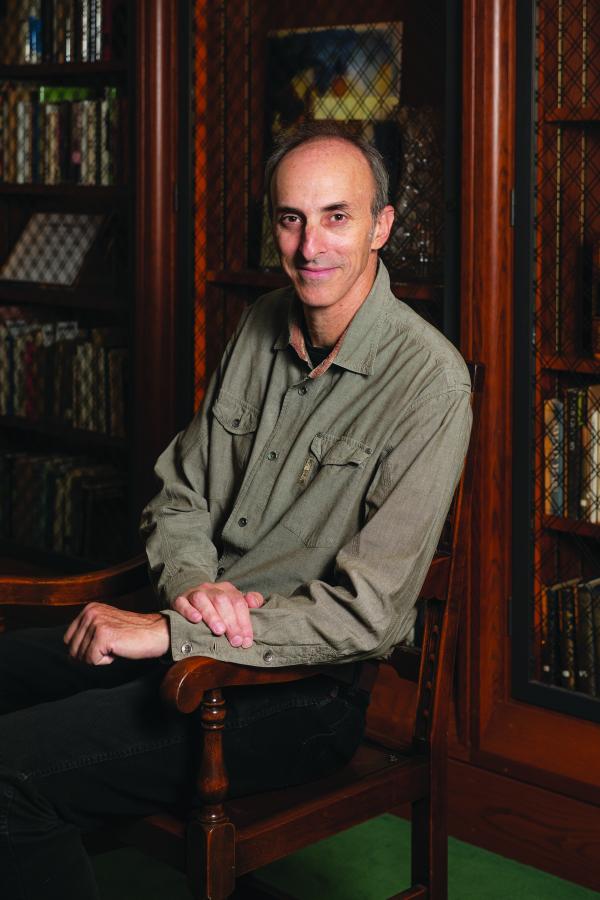September 10, 2021

Guy Beiner. The Israeli native will also direct BC Center for Irish Programs.
Guy Beiner, whose academic and research experiences in Ireland have helped shape his career as an award-winning historian with a unique expertise in memory studies, has been appointed as the Craig and Maureen Sullivan Millennium Professor in Irish Studies at Boston College, the university announced in a release early this month.
Beiner also will serve as director of the University’s Center for Irish Programs, the university said, a responsibility that encompasses all Irish initiatives at Boston College including the Irish Studies Program, the John J. Burns Library Irish Collections, Boston College-Ireland in Dublin, and the Gaelic Roots Program.
A full professor of history at Ben-Gurion University in Israel since 2017—he began teaching there as a lecturer in 2003—Beiner served as the Burns Library Visiting Scholar in Irish Studies at BC for the 2019-2020 academic year. The Israeli native earned his doctorate from the National University of Ireland-University College Dublin and was a Government of Ireland Research Fellow at Trinity College Dublin.
He was also a National Endowment for the Humanities fellow with the Keough-Naughton Institute for Irish Studies at the University of Notre Dame, a Government of Hungary Scholar at the Central European University, and a Marie Curie research fellow at the University of Oxford.
“Guy is a remarkably innovative historian whose interdisciplinary skills will enhance Irish Studies at Boston College,” said Robert Savage, interim director of the BC Irish Studies Program.
For Beiner, the Sullivan Chair appointment means not only joining another university but relocating thousands of miles—a transition he is happily prepared to make, according to the statement.
“At Ben-Gurion University, in Israel’s relatively remote Negev desert, I was the only historian in the country specializing in Ireland,” he said. “Moving to Boston College, a leading American university with a first-rate History Department and a distinguished Irish Studies Program, opens many opportunities to forward my research and to contribute to the global development of Irish studies.”
Beiner’s scholarly methodology, the university pointed out, is reflected in his 2018 book, Forgetful Remembrance: Social Forgetting and Vernacular Historiography of a Rebellion in Ulster, which explores the contrasts in how the 1798 rebellion against British rule in Ireland’s Ulster province—a conflict marked by an unusual, if short-lived alliance between Catholics and Protestants—has been remembered by different Irish communities and constituencies. Whereas the uprising was fervently and publicly recalled in the Catholic/nationalist south, the Protestant/Unionist north—mindful of solidifying ties with Britain—gradually scrubbed it from official commemoration or record, until the events of 1798 lived on more through oral histories, personal memoirs, historical fiction, and folklore.
“Social forgetting, as I define it, is not total amnesia: It’s more akin to when a judge instructs a jury to disregard certain inadmissible testimony,” said Beiner. “Officially, the jurors are expected to discount that information, but since it’s been brought to their attention, in all likelihood they will still keep it in their minds. The memory is essentially retained under a façade of forgetting.”
During his year as Burns Scholar, Beiner taught a course on history and memory related to “Bloody Sunday,” the 1972 killings of protestors in Northern Ireland by the British Army that became a landmark event of the Northern Irish conflict, and led the seminar Commemoration Fever: Heritage, Remembrance, and Forgetting in Contemporary Ireland. He also gave a lecture on how the insights of two largely neglected Irish historians can inform current discussions of Ireland and Northern Ireland’s places in Europe and the wider world.

